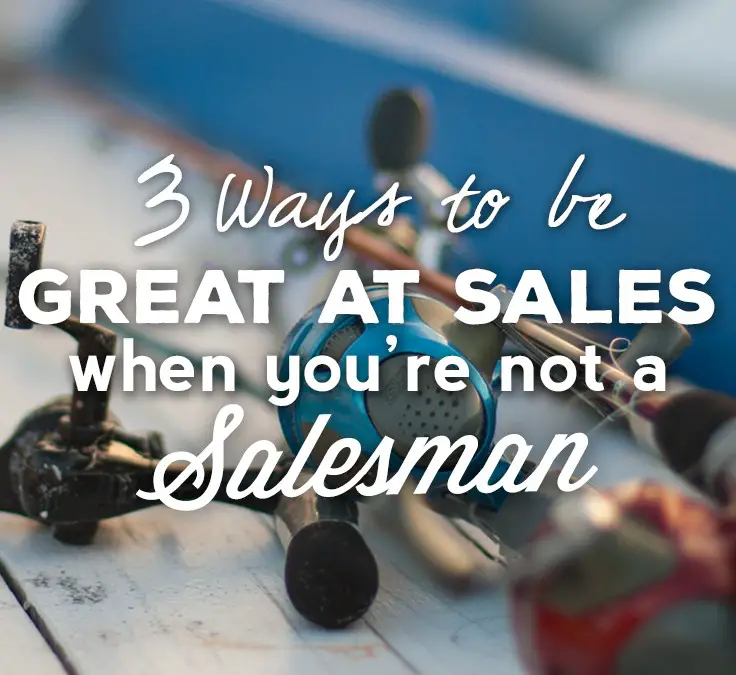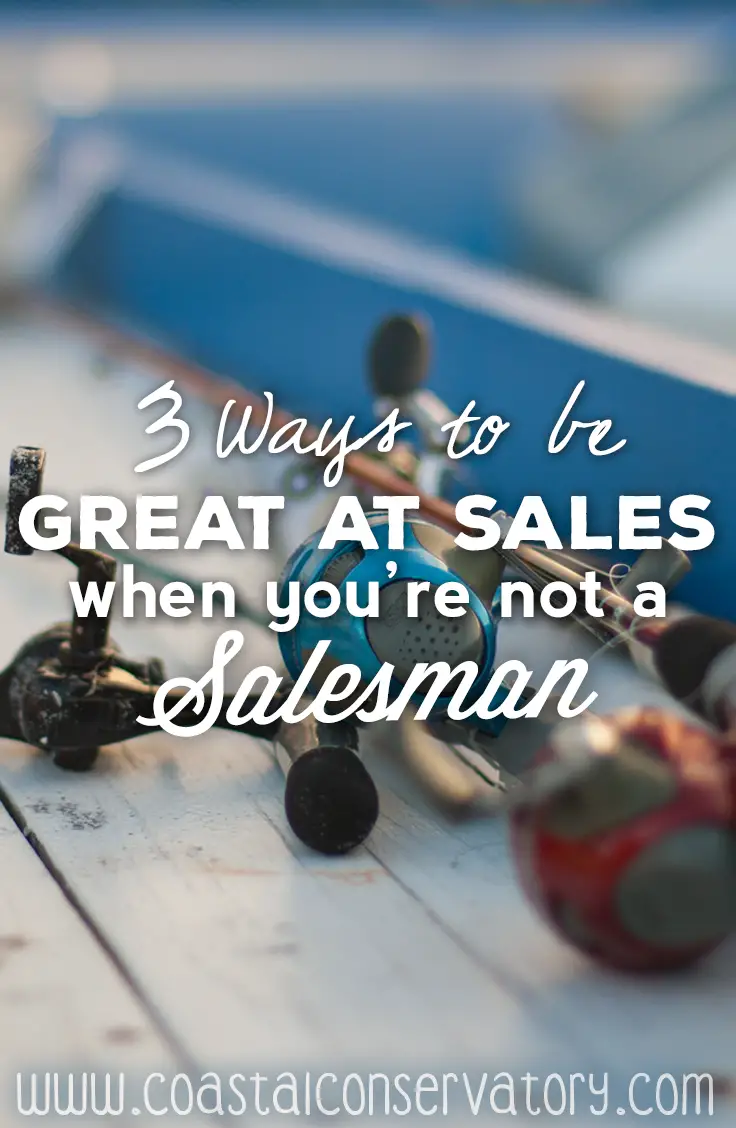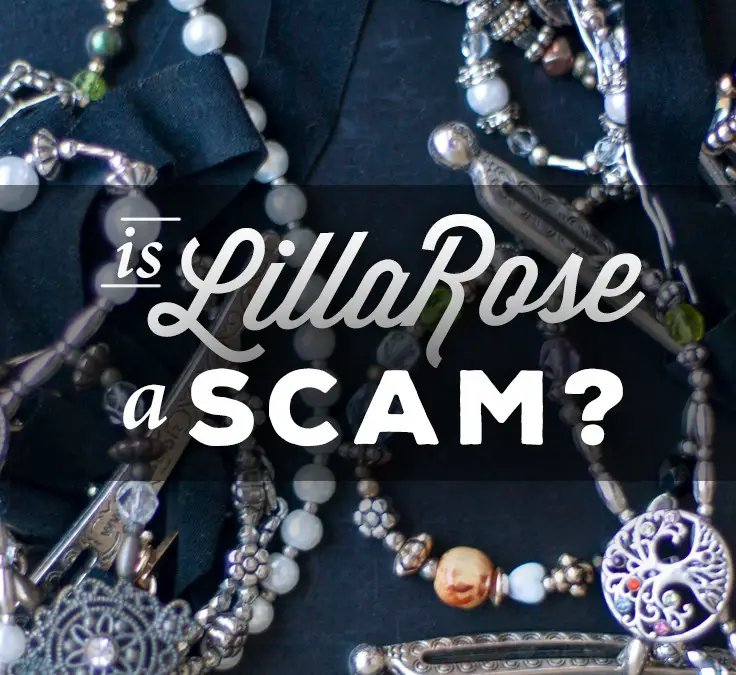
by Reagan Ramm | Apr 14, 2016 | Home Discipleship
Equality.
Our society clamors so loudly for it. It seems so noble, and patriotic. After all, is it not written in our American Constitution that all men are created equal?
The problem is this nobility isn’t what is fueling the changes we are seeing in our culture. Not a selfless desire to see everyone raised up, but a desire to have everyone brought down to our level. Having everyone equal to me is another way of saying no one is better than me.
I don’t have to be jealous of someone having more than I do. I don’t have to envy those who are “better” than me. We are all equal. Taken to the extreme, it leads us into the world we see in Lois Lowry’s book, The Giver.
I’m not saying that is where we will end up, but we’re fooling ourselves if we think we are so great for esteeming equality, what is more, this isn’t what the Bible would have us do. Consider:
“Do nothing out of selfish ambition or vain conceit. Rather, in humility value others above yourselves, not looking to your own interests but each of you to the interests of the others. In your relationships with one another, have the same mindset as Christ Jesus:
Who, being in very nature God, did not consider equality with God something to be used to his own advantage; rather, he made himself nothing by taking the very nature of a servant, being made in human likeness. And being found in appearance as a man, he humbled himself by becoming obedient to death—even death on a cross!” – Philippians 2:3-8
Just reading this passage again, I am struck by how insane, how alien, this idea is when compared with the humanistic worldview we are bombarded with every day in our culture.
Jesus was equal with God! He was God! Yay equality! I’m sure equality is very, very important in the Trinity, no? God the Father is probably always trying to gain more power and glory to Himself, and Jesus has to struggle to show that He is an equal. Perhaps Jesus held some protests, or maybe created an “International Jesus Day” to remind the world that He is just as equal. Maybe Jesus has to start a new hashtag to remind people to say His name just as much in their prayers as the Father.
Yeah. No. This very image is pretty ridiculous, right? How pathetic would the Trinity be if this was the case? Thankfully, we see something far greater, far more beautiful than a mere system of checks and balances to ensure that all in the group are equal.
Jesus did not strive to advance Himself. He was humble and modest. He made himself nothing. Nothing! He made Himself a servant, and took orders from death—death on a cross! This is humiliating and demeaning! Not equality!
This is because we aren’t to be seeking our own promotion.
Not only should we not consider ourselves better than others, but we shouldn’t even consider ourselves just as good as others.
As Paul points out, we should imitate Jesus, and make ourselves nothing, and the servants of others. We should “value others above [ourselves].”
This is crazy, and yet this is what Jesus, the Son of God, did for us. Try and wrap your mind around that for a second. The most powerful being in existence, the creator of the entire universe…considered you, I, every human individual, as being more valuable than Himself. So valuable in fact, that He was willing to make Himself our servant, suffer torture, and eventually death for us.
This is what we’re supposed to do for our fellow man. Wow. That’s scary. That doesn’t sound very good, does it? Equality sounds much better! I’m okay with not seeing myself as better than other people, but can’t I at least consider no one else as being more important than me?
Nope, we don’t get to do that as Christians. We were bought at the highest possible price, and our allegiance is to Christ, and He calls us to be perfect as our Heavenly Father is perfect (Matthew 5:48). This means we are to love as He loved, considering others as more important than ourselves, not seeking to elevate ourselves, but to diminish ourselves to servants.
Of course, this doesn’t mean we walk around with a false humility and belittle ourselves. That would just be another form of pride. The focus is still on ourselves. Rather, what Paul is saying, what Jesus did, is totally abandon the self–forsaking the pursuit of the self, and instead seeking the good of others. In this way, we are to treat others as more important than ourselves–not envying them for being “better” than us, but giving others priority over ourselves.
Perhaps this could even mean physically dying for others, as Jesus did. More likely, it will mean living for others. As Paul described, “Not looking to your own interests but each of you to the interests of the others. In your relationships with one another, have the same mindset as Christ Jesus.”
This is not where things will end, however. The last shall become first, and that is exactly what was the result of Jesus’ perfect love.
“Therefore God exalted him to the highest place and gave him the name that is above every name, that at the name of Jesus every knee should bow, in heaven and on earth and under the earth, and every tongue acknowledge that Jesus Christ is Lord, to the glory of God the Father.” – Philippians 2:9-11
So, the battle cry should NOT be equality. We should NOT seek to advance and promote ourselves, but others. We should not be saying, “You are my equal,” but rather, “You are better.” This is something I greatly struggle with. It’s so easy to get caught up in the deception that the world revolves around me, but thinking in such a way isn’t the best way for me to live, never-mind the fact that it is not a good mindset to have when interacting with others.
Think for a moment how drastically our world would change if we all began to live this way. What if we all started to consider others as being more important than ourselves? What if Christians lived this way? What if we at least lived this way among our friends and families? We would be able to experience a taste of the life to come.

by Reagan Ramm | Apr 4, 2016 | Home Discipleship
Yes. No. Two simple little words that are so difficult to say. If you’ve paid any attention to politics, you probably know how much politicians struggle to say these two words. Instead, 99.99% of the time, they look to find an excuse and explain away something they said or used to believe. But are we much better?

When someone asks us to do something, or invites us to an event we don’t want to go to, what do we do? Do we just say, “No thanks,” or do we try and make up some excuse for why we can’t go? I don’t know about you, but more often than not, I create an excuse.
Or, we may be more ambiguous with our answers, allowing ourselves to have an escape route out of a situation in case we don’t feel like following through later. We don’t to commit ourselves on one hand, but we also don’t want to offend our friend, coworker, family member, or whomever the case may be, by turning them down. We feel trapped, so we’ll make excuses.
And yet, this is exactly what God condemns:
“Above all, my brothers and sisters, do not swear—not by heaven or by earth or by anything else. All you need to say is a simple “Yes” or “No.” Otherwise you will be condemned” (James 5:12).
Clearly, this is an old problem. Jews in Jesus’ time used to swear by the Earth, which wasn’t as big a deal as swearing by God, and therefore, wasn’t an oath they had to keep. Just like how we make excuses today, we like to have an escape route.
Instead, we should let our yes be yes, and our no be no. If we say we are going to do something, we should. If we can’t or won’t do something , we should just say no.
Of course, the way our culture operates, just saying no often isn’t enough for most people. They want a reason. Anticipating this, we often give a reason for our “no” even before being asked, even if that reason isn’t the real reason. We want to make our refusal seem justified. We need to stop doing this, and simply let our no be no.
Even if we do have a legitimate reason for saying “no” to something, more often than not, we would still be better off keeping that to ourselves for a couple reasons.
- People won’t believe your reason
Since it is so common in our culture to make up excuses for why we can’t do something or go somewhere, it’s likely that many won’t fully believe you when you do have a prior obligation. This is the “Boy Who Cried Wolf” effect.
Because many won’t believe you, it will at the very least make you look like an excuse-maker, and will also likely lead to #2.
- People will try and talk you out of your decision
If you give a reason for why you can’t do something, then that reason becomes vulnerable to scrutiny. People will naturally compare your excuse with their request. Was your excuse good enough to justify turning them down? Or should you have sacrificed to meet their request?
This can all lead to a lot of misunderstanding and potential hurt and dishonesty. It is much better if we simply let our yes be yes, and our no be no, forsaking excuses in general.
Do you find yourself making excuses? Do you struggle to let your yes be yes and your no be no? What do you do to combat this struggle?


by Reagan Ramm | Jan 7, 2016 | Home Business

I used to be a Branch Manager for a college entrepreneurship company. This “college internship” ended up resembling a sales job rather than an opportunity to learn how to run my own business. That said, I did learn a remarkable amount about the sales world. I became good at sales, even though I am not a salesman.
Seriously, working in sales is probably one of the very last things I would like to do. I’m introverted, I’m not charismatic, and the idea of trying to sell a product to someone makes me extremely uncomfortable. My job involved A LOT of door-to-door sales, which I’m pretty sure I have a phobia of. When I played football in high school, we players had to participate in a fundraiser and go door-to-door selling coupon cards. If you didn’t sell your quota, you would be punished with some pretty intense conditioning at practice. I took running-until-feeling-like-you-would-throw-up over going door-to-door. That’s how much I hated it.
Yet here I was, just a couple years out of high school, going door-to-door, and doing well. I did so well, in fact, that in the beginning of my internship, I was in 1st place among all other branch managers in the nation when it came to total sales. How is this possible for someone who is not a salesperson?
During my internship, I learned all the best sales tactics. I learned how to “objection handle.” I learned how to “build rapport.” We were taught a “script” to use anytime a potential customer brought up an objection.
If he said he couldn’t afford it, we were to say that, “You’d be surprised how inexpensive a painting crew of college kids can be. Plus, I’m offering a free estimate. It couldn’t hurt just to know how much it would cost.”
If he said he is a “do-it-your-self-kinda-guy,” we were taught to point out how long it can take to paint an entire house by yourself. If you painted only on weekends, it could take you half the summer by yourself.
If he said he didn’t want inexperienced college kids painting his house, we were to point out how all our painters were trained and certified by Sherwin Williams (this, however, turned out to be a lie).
If he said his house didn’t need painted, we were to point to some paint chipping from the house, or say we noticed the paint looked a little faded if we couldn’t find any chips.
You get the idea. We branch managers were taught every objection a customer could potentially come up with, and how to handle it. Not all of these objection-handling tactics were deceptive or manipulative, but as you have probably gathered, a lot were. I knew all the slick sales moves that salesmen get a bad reputation for. However, these tactics don’t work if you’re looking to run a moral and successful business for the long haul.
Of course, for someone who is a natural salesman, these under-handed strategies may work. After all, they wouldn’t still be in use if they didn’t. But if you want to run a business that is both successful and moral, and you’re not a salesman, we have to abandon the idea of trying to get someone to buy.
Well now what? How can you get someone to buy without trying to get them to buy? Should you just cross your fingers and hope you get lucky? Not all. The answer is simple: seek the good of your customer.
Huh? That’s right. The Golden Rule is the answer. Do unto others as you would have them do unto you.
1. Truly care about your potential customer; don’t be nice and seem interested in them just to get a sale.
Don’t be fake. People are valuable, and not things to be used. Develop a relationship with them. Really do care. If you do, then you will know if your product truly is the best thing for them. If so, then you can recommend it with confidence, knowing how much it will benefit them. Even if they never make a purchase, you will have made a friend and made a difference in someone’s life. And that is what is truly valuable.
If you have a great product that you really believe will help your potential customer, then let them know about it! Can you think of any products that you love and use every day? Now think if you didn’t have it? Wouldn’t you want someone to tell you about how great it is so you can get it and it can help you?
For example, I love the writing tool Scrivener. It allows me to keep all of my thoughts, drafts, outlines, pictures, research, anything related to my writing project, in one simple organized place. I can easily find anything I need related to my latest article or novel, and also easy sort. It’s a fantastic tool that every writer should have. I’m so glad I found out about it from a friend (who, as it so happens, wasn’t trying to sell it to me).
Be a friend to your customers. No, this doesn’t mean you hang out with them or call them up for a friendly chat on weekends, but like a friend, you look out for their best interest. If your product is great, simply tell them what makes it great and how it can help them, like you would a friend.
Of course, this is contingent on your product. Do you have a great product? If not, you’re not going to have much success selling it. How are you going to be able to convince someone they should buy something that won’t help them? If you don’t have a great product, you should probably get out of your business now and not waste any more time. Instead, find a product you do love, that can help people, and that you can be passionate about. It will sell itself. Not sure if you have a great product?
If someone was living in a house without a roof, you wouldn’t need to be a good salesman to tell them about the value of roofs. You could easily point out how a roof would protect them from the elements, keeps out pests, and grants them privacy from those annoying hang-gliding neighbors. You could go on and on about how great roofs are without knowing anything about sales. Why? Because the product—a roof—is such a must-have with a great many benefits to the owner!
2. Focus on the benefits to them rather than the actual product and its features.
How is it in the best interest of your customer to have your product?
Notice, in the above example I did not simply list the features of a roof. I did not say, “It’s angled and comes to a point at the top which is a very nice feature because it will allow rain to run off.” No, instead, I pointed out how this product would specifically help this particular person. This particular potential customer has been annoyed by the presence of hang-gliding neighbors peering into their roofless home. A roof would definitely help solve this particular problem of theirs.
Do NOT just talk about the FEATURES of your product, but put your main focus on the BENEFITS to your potential customer! Yes, your potential customer may agree that a roof sounds like a great thing, but what everyone wants to know is what that means for THEM. It’s a very subtle but crucial difference. A good rule of thumb is to focus 20% on the features of product, and a whopping 80% on the benefits to the customer.
So for our roofless customer, for example, only 20% of what you say should be things like, “Our company has been in business for 20 years!” or “Our asphalt is the strongest in the industry! or “We offer the lowest prices in the tri-state area!” The majority of what you say should be things like, ” You will stay super warm and dry during downpours!” or “You will save tons of money over the long-run by not having to replace your furnishings every month!” or “You will achieve peace and privacy from the Smiths and their hanglider!”
Likewise, if you want to be good at sales, even if you’re not a salesman, you need to show what makes your must-have product a must-have for your particular customer, and to do that, you have to truly believe in your product, and care about your customers. If you have that kind of product, then you are well on your way being successful.
3. Share your personal testimony about how the product truly helped you.
Share what things were like for you before you found the product, and how things have changed for the better for you now. You can also share testimonials from others if you have the time or are writing copy, but by far the biggest impact will be your own story, as your potential customer knows you and trusts you. They don’t want to know as much about how it’s helped others, as they want to know how it’s actually helped YOU. Then assure them that if your product worked for you, then it will absolutely work for them! And guarantee that if you can, so there is no risk to for them to give it try!
Think about it. Why do companies to get celebrities to advertise their products? Of course one big reason is that people want to be like these people, and believe using the products they use will help them bridge the gap. However, another reason is that people feel like they know these celebrities. They see these people all the time on TV, that rightly or wrongly, they have the sense that they have come to know them, and believe if the product is good enough for these people they know, it must be for them.
And there you have it! Three ways to be successful in sales even if you aren’t a salesman. In a nutshell, this all boils down to legitimately caring about others, and being passionate about how your product helps them. From there, all you have to do is honestly communicate these two things to your potential customers. Let us know how these strategies work for you!
If you want some more tips on how to start your own successful business, then we highly recommend checking out this free 10 day marketing boot camp!


by Reagan Ramm | Nov 19, 2015 | Home Business
Many people are skeptical of direct sales organizations.  They associate them with pyramid schemes or get-rich-quick-scams. Such skepticism is warranted as there are a lot of sketchy companies out there, but is Lilla Rose among them? Is Lilla Rose a scam?
They associate them with pyramid schemes or get-rich-quick-scams. Such skepticism is warranted as there are a lot of sketchy companies out there, but is Lilla Rose among them? Is Lilla Rose a scam?
There are essentially 6 “red flags” which signal that a direct sales company is a scam:
Red flag #1: High Enrollment Cost
If a direct sales company has a high enrollment fee, this is a sign that it could resemble a pyramid scheme, even if it is legal.
A high enrollment cost signals that there is a good chance the majority of your income will be made merely by getting others to sign-up, rather than through sales of a quality product to others not in the organization.
This is not healthy, and also a sign that once enrolled, you will be pressured into having to constantly bug your family, friends, and even strangers in the grocery store checkout line to get more and more people to enroll to sustain the pyramid.
When we look at Lilla Rose, however, we find a very low enrollment cost.
It is only $89 for the enrollment kit, and for that payment you receive over $300.00 worth of product, a free website, and an array of marketing supplies. There is a lot of value given in return for signing up.
Lilla Rose does not make a dime on the enrollment kits, nor do the consultants. This is a very good sign, and a great indication that it may not be a scam.
Lilla Rose also offers an optional add-on inventory kit at the time of enrollment, called the Fast Start Kit.
This benefit could be confusing when using the six red flags to evaluate a company for signs of a scam. It is a bigger investment, at $500, but it is not an enrollment kit, as one still has to enroll with the Party or Show kit. It is an inventory package, with over $1100 worth of product, so is an amazing deal on product, to help a consultant get off to a great start with inventory to sell at 55% profit!
And yes, their sponsor does make a nice $200 bonus on that Fast Start kit, but it is from sales of product, and not from the enrollment kit itself. This is an important distinction.
Red flag #2: You Only Make Income Through Enrolling Others
Similarly, even if the enrollment cost is not exorbitant, you will want to stay away from network marketing or MLM companies where your income is primarily generated through signing up others.
You should be able to make a good profit by selling product alone, without having to enroll a single person. Enrolling others should be icing on the cake; a nice bonus if you are wanting to make a higher income (and many times quite a bit higher!) but certainly not necessary for making a decent profit.
For Lilla Rose, this is exactly the case.
It is entirely possible to make a good income from selling product alone.
A consultant can sell at a craft show or at a home or Facebook party and make immediate profit and a good return on their investment of time.
Watch out if a network marketing company offers a piddly percentage of sales for your commission.
Obviously, it would be very difficult to make a good profit if you are only paid 5-10% on your sales.
With Lilla Rose, you are paid a hefty 30-45% on sales, with some opportunities to earn over 50%! This is a great margin for anyone in retail sales, let alone a direct sales company!
Of course, you are only one person and can only be in one place at a time, and only have so many hours in your day. Two people can reach more than one, so signing up more people to sell would definitely benefit you, and is recommended, but certainly not a requirement to make an income. This is a sign of a healthy direct sales company.
Red flag #3: No Outside Customers
If you are mostly going to be selling your product to yourself or other distributors in a particular model, you may want to reconsider. There must be third party customers buying the product for the direct sales company to be sound.
Yeah, it’s great if you think your grandma’s cookies are delicious, but if no one else does outside your family, it’s going to be hard to sell them. They’re not a viable product.
Lilla Rose, on the other hand, is viable, as the vast majority of sales comes from third party customers, and many repeat customers at that. People not enrolled as consultants with Lilla Rose love the products! This is a very good indicator that Lilla Rose is not a scam, but a legitimate business venture.
Red flag #4: High Quotas
If there is a high quota or a minimum amount that you are required to purchase yourself, beware, as you could lose a lot of money. If the company thinks their consultants have to be the ones making most of the purchases, odds are, the product or company isn’t that great.
Against conventional wisdom, you decide to start a cookie business with your grandma’s cookie recipe. You get your family members to be part of the business, and require them to buy 50 boxes a month, let’s say, since you need to cover costs and you don’t have enough customers.
This is BAD!
All the income is artificial because you are your only customers! If you want to make a real income, there can’t be a high quota or minimum amount that you have to buy yourself. More than likely, you’ll lose money.
Lilla Rose, on the other hand, has NO quotas.
There is no minimum to receive your commission or discount on your personal sales or to remain active. In order to earn bonuses off your team, however, there is a $200 minimum, but this is consistent with a sales-based business model rather than an enrollment-based pyramid model, and is actually a very good sign of a sound company.
Red flag #5: The Compensation Plan is Unrealistic
Closely check out the compensation plan. Is the pay-out realistic? Is it sustainable?
For example, if the enrollment fee is $300, and you make $100, not only on each person you enroll, but also for each person your team enrolls, where is that commission coming from? A company will not last long at that rate.
Lilla Rose has a very logical compensation plan based on percentages of sales, which is generous, but completely sustainable for years to come.
Consultants have the ability to earn a casual part-time income or a nice full-time income, based on their time, effort, creativity, and ingenuity.
Red flag #6: Product Is Not Unique and/or Overpriced
Beware of direct sales companies selling over-priced and unoriginal products. If the product is something you could get for less at Walmart, it will be very difficult to convince customers that they should buy from you.
Lilla Rose is not only extremely unique, but the Lilla Rose products are also very affordable!
And there you have it. Lilla Rose passes all 6 scam tests, so Lilla Rose is NOT a scam!
To learn more about signs of a healthy network marketing company, read Is MLM Really a Legitimate Business Model?
For more info on the Lilla Rose business opportunity, please read A Remarkable Opportunity.

by Reagan Ramm | Oct 8, 2015 | Home Education
In part 1 of this series, I examined  all of the time spent outside of class during the 7 total hours in the school building.
all of the time spent outside of class during the 7 total hours in the school building.
Part 2 described the wasteful nature of electives.
In part 3, we will be moving on into the core classes. Surely less time is wasted in such important classes as Math, English, Science, History, and foreign language.
It’s harder to actually assess how much time was wasted in these classes, as it would fluctuate depending on teacher and time of year. However, in pretty much every class I’ve been in, only about half the class is actually spent on actual instruction.
What I’ve learned about teachers, is they like to talk. I may have had to teach myself most of Honors Algebra II, but I did learn a lot about my teacher’s personal life, credit card debt, and opinions on social issues.
For example, she once expressed her opinion that she didn’t think it right that the woman should always have to take her husband’s last name when married. This led to class time being consumed with debate on this issue, not mathematics. Debate is nice, but not when you’re paying a lot of taxes to be taught Math.
What was especially frustrating was when we would get to the end of the class time and the teacher hadn’t finished teaching all the material. She would blame us for being too talkative, and then just tell us to figure out the rest of the material for ourselves and do the homework (homeschooling).
Even at public school, it’s up to students to learn
There was no going back. She couldn’t teach the rest of the material the next day because that would put us behind schedule and we would never cover all of the yearly material.
So if we ran out of time, we ran out of time. Missed something? Too bad, you must learn it on your own, or not at all. I still recall one day when she got so mad that a number of students for looking at the clock that she simply stopped teaching and just stood in front of the chalk board with her arms crossed. Very immature, spiteful, and harmful to the students who actually did want to learn.
In my AP chemistry class—which was two periods long (an hour and a half)–the entire first period was spent going through a boring and confusing power point. Several of my classmates would fall asleep during this portion of the class. These weren’t underachievers either. This was AP (college level) chemistry. I struggled to stay awake myself. It was the end of the day, the lights were off, and the teacher was speaking Greek.
The second period of the class was just for us to work on homework. However, since 90% of us had no idea what the teacher had said, we weren’t capable of completing the homework. Instead, we just took turns copying the answers to the homework out of his answer book—which he let us do—then we talked the rest of the class, or worked on homework from other classes. At home, we would then go over the answers and try to figure out how in the world the teacher had arrived at them.

Chem Guy: one of the greatest men of our time, fo sho!
In order to overcome the lack of teaching, I bought an online Chemistry course to help teach me, and I watched a lot of youtube videos by “Chem Guy” (who was my Chemistry savior).
I spent about two hours every night on chemistry homework, and was getting nothing from class. I essentially had to teach myself college chemistry as a sophomore in high school.
The result? I got an “A-” in the class, but only a 2 out of 5 on the AP test, which means I didn’t get college credit, which was the whole point of the class. It also goes to show that grades don’t always reflect learning. One would think that an “A-” in the AP class would correlate to passing the exam. Not the case, and yet grades are all that matter in the public school system!
Many times I questioned myself about what the point of even having a teacher was if you just had to learn everything on your own, anyway.
Of course, not everyone did learn on their own, and these were the people who would get the “B”s and the “C”s. Sure, some of the responsibility is on them for not putting in the work, but they are were expecting to be taught. They were victims of the system. Conditioned to sit back and be fed what they needed. The students who received all “A”s; however, they succeeded because they got a tutor, or they spent an inordinate amount of time doing homework and studying and learning on their own.
Again, nearly all of my classes could be cut in half, with half the time spent on instruction, or “teaching,” and the other half spent on doing homework or figuring it out on your own—or more commonly—burning time. So much time was wasted.
This 50/50 split wasn’t true in all of my classes. I did have one class that was chock-full of fun and productive teaching and instruction, but that was a very unique and exceptional class. Because of this common 50/50 split in time, our 4 hours and 15 minutes of remaining educational instruction time is cut down to approximately 2 hours and 15 minutes.
This roughly 2 hours isn’t all the time spent learning, but it’s all the time spent being given instruction by teachers, which is supposedly what sets public school apart from homeschooling.
All the other learning that takes place during the school day is generally left up to the student, and quite frequently, students choose not to do homework. You can find ways to get decent grades without doing homework or putting in much effort. Even if you are a hard worker, and do want to commit yourself to learning, it’s hard to learn much in an environment as wasteful and inefficient as the public school system, especially when your peers are likely to ridicule you for “trying”. Public school hurts poor and good students alike.
Most of my learning occurred outside of class, doing homework or studying the textbooks on my own.
Sound like a typical day of homeschooling to anyone?
Ever wondered how kids could be locked away inside the school building for hours on end and still have more work to do at home? It’s because the system is so inefficient, and wasteful. There shouldn’t be a need for homework, but there is.
Also, what should be noted is that there was much that was not factored into my estimation. I didn’t count all of the times where the “class clown(s)” would act up and cause the teacher to hesitate or get distracted and go off on a tangent.
I’m also not counting the times where a teacher would have to have a conversation with a student, “out in the hall,” when the rest of us would just have to sit and twiddle our thumbs in the awkward silence.
There were also school assemblies and pep-rallies, which were a complete waste of time, but we always looked forward to them for exactly that reason—time off from school work. Fire drills, tornado drills, lock-down drills, real lock-downs, delays for weather, early dismissals because of weather are all time wasters, but they did not factor into my estimation.

Lockdowns: Putting all the kids in one spot so the killer doesn’t have to work as hard.
I’m also not counting the days completely lost to substitute teaching. Days with substitute teachers are rarely productive or educational. Indeed, I’ve had some subs that didn’t even know anything about the subject they had to teach.
Substitutes simply follow the instructions left by the teacher, which means assigning busy-work or telling students to read their text books.
This usually results in an entire class period of teenage socializing.
Following up on a tip from a former public school teacher about the frequent occurrence of substitutes I discovered the following statistics. Up to 10% of teachers are absent on any given school day, and about 5 million students nationwide in some 274,000 classrooms have a substitute teacher on any given school day.
There is a lot of time wasted in public school, and this is not only my belief. Ask a typical student, ask a typical teacher; they’ll tell you the same thing if they’re being honest. They may not have taken the time to actually add everything up, but the majority of people will at least have the vague idea that, “yeah, a lot of time is wasted,” but most students, and even most teachers are okay with this.
Finding ways to waste time has even become an art-form to many students. After all, the alternative to wasting time is actually doing hard work, or pointless busy-work, which isn’t fun.
Also not factored into my estimate is all of the time wasted on false and detrimental instruction, like the views taught in “Health Class” on sexuality, or the teaching that the only significant “achievement” of Ronald Reagan was the Iran Contra affair, or being taught Darwinian Evolution is science and the reason we’re all here today.
Of the 7 hours spent locked away inside a public school building, approximately only 2 and a quarter of those hours are really spent being given instruction. Nearly 5 hours are wasted.
With all the time wasted in public school, is it any wonder that America is falling behind the rest of the world academically?
Is it any mystery that other nations are outscoring America in every subject?
We need more education and less school
I recently saw this quote from the writer and Youtube celebrity, John Green: “Let me explain why I like to pay taxes for schools even though I don’t personally have a kid in school: I don’t like living in a country with a bunch of stupid people.”
Now, Mr. Green’s point is valid, but it is mis-made. What he is really arguing for is education, not public school.
Education is very important.
What Mr. Green must not realize (maybe because he went to a private boarding school, not a public institution) is that public education is a very poor means and environment for acquiring a solid education.
There are much more efficient and cost effective alternatives. We must also forsake the idea that time and learning are directly related. It is not necessarily true that the more time spent doing something the better you become at something. Practice does NOT make perfect. It is perfect practice that makes perfect, and our public schools are rarely providing the kind of effective practice that students need to improve.
We all know the public education system isn’t working. Even our illustrious president recognizes the current system is a failure, but his solution of throwing more money at schools will not patch up the holes. But, I’m sure the money would be put to good use, like for acquiring more flat screen TVs to add to school collections, or possibly the purchase of new computers for students to play “Crush the Castle” on during study hall.
Money will not solve any of the problems which are the fruits of a fundamentally flawed system. That’s like throwing money at a ship building company committed to constructing boats out of Swiss cheese.
If you’re a homeschooler, I hope this series has equipped you with a better understanding of the reality of the public school system, and provided you with more ammunition to fearlessly articulate the superiority of home education.
Sure, time can be wasted in homeschooling too, but it’s likely the time not being spent on academics is being spent on something that is at least worthwhile, unlike at public school.
If you’re a public schooler, then I hope maybe your eyes have been opened. Your school is not giving you as much as they say they are. What you do with that knowledge, is up to you.
Linked up at:
The Modest Mom
A Mama’s Story








 They associate them with
They associate them with 
 all of the time spent outside of class during the 7 total hours in the school building.
all of the time spent outside of class during the 7 total hours in the school building.
